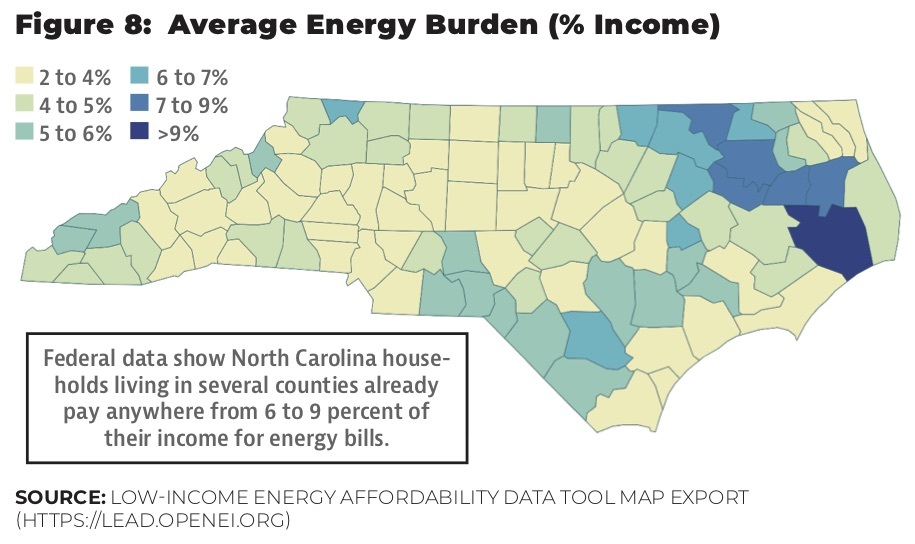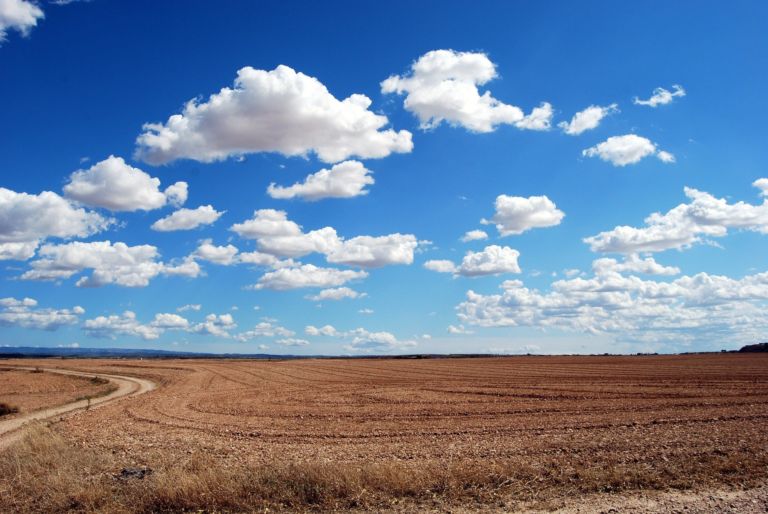The National Oceanic and Atmospheric Administration (NOAA) is predicting an above-average Atlantic hurricane season this year. The prediction hinges on “a quick transition to La Niña conditions, which are conducive to Atlantic hurricane activity because La Niña tends to lessen wind shear in the tropics,” and also on warmer-than-average oceanic temperatures and an above-average west African monsoon (from which hurricanes often spin out).
What would it mean if, God forbid, North Carolina were to suffer a devastating hurricane? Would it mean that human-induced climate change was getting worse and we are suffering the effects? Would it mean that North Carolina policymakers should work all the harder to appease the climate gods with sacrifices remove anything and everything from people that might emit carbon dioxide (CO2) and be hypothesized to “contribute to climate change”?
Gov. Roy Cooper’s 2018 executive order to “Address Climate Change and” — and? and what? — “Transition to a Clean Energy Economy” was based on the very notion. As he stated in releasing it, “With historic storms lashing our state, we must combat climate change, make our state more resilient and lessen the impact of future natural disasters.” Cooper called it necessary to reduce the state’s greenhouse gas emissions in order to, as WRAL reported, “lessen the impact of climate change, which he linked to the catastrophic flooding seen in eastern North Carolina from Hurricane Matthew in 2016 and Hurricane Florence” in 2018.
Cooper and any other policymakers who think reducing North Carolina’s emissions would lessen climate change and lessen future natural disasters face an insurmountable problem already — even if CO2 emissions are indeed driving climate change–induced bigger storms:
- CO2 emissions from anywhere have global, not localized, impacts
- North Carolina has already cut CO2 emissions from electricity by nearly half
- Similarly, the United States has cut far more CO2 emissions from electricity than any other nation in the world — most of the world is still increasing their emissions
- Within the next five years, China is adding (at last count) 392,000 megawatts (MW) of high-emission coal-fired power (North Carolina plans to close all of its coal-fired power plants by 2036, but that amounts to just over 9,000 MW)
- All possible climate “gains” North Carolina could make by ceasing all CO2 emissions would be almost immediately obliterated by China’s increasing CO2 emissions
The only things North Carolina policymakers actually accomplish when they pass policies to “fight climate change” is to impoverish North Carolinians and make no impact, good or ill, on the climate. Oh, and enrich climate grifters and lobbies, too, of course.
“As for the media, pointing to hurricanes as an example of the ravages of human-caused climate change is at best unconvincing, and at worst plainly dishonest.”
Dr. Steven E. Koonin, Pres. Barack Obama’s Undersecretary for Science in the U.S. Department of Energy
Weather, Not Climate
What do you mean “even if CO2 emissions are indeed driving climate change–induced bigger storms”? Don’t we all know they are?
Well, no.
Even a particularly destructive hurricane cannot be said to be caused by — nor can it be taken as proof of — human-caused climate change. Pres. Barack Obama’s Undersecretary for Science in the U.S. Department of Energy, Dr. Steven E. Koonin discussed this inconvenient truth in his book Unsettled: What Climate Science Tells Us, What It Doesn’t, and Why It Matters.
Koonin frequently wrote about the difference between the science of climate change and the political rhetoric and media coverage of it. The science is much, much less certain than politicians selling fear and media selling those politicians and their politics. By implication, forcing rash actions on people based on uncertain science — such as shutting down working baseload power plants —is foolish and dangerous.
North Carolina’s electricity bills are set to double in a few short years because of this policymaking, and the state already has a significant problem with energy poverty.

From Koonin’s book, we learn (emphasis added):
- From the Executive Summary of Chapter 3 of IPCC’s 2012 Special Report on Extreme Events (SREX): “Many weather and climate extremes are the result of natural [i.e., not man-made] climate variability (including phenomena such as El Niño), and natural decadal or multi-decadal variations in the climate provide the backdrop for anthropogenic [human-caused] climate changes. Even if there were no anthropogenic change in climate, a wide variety of natural weather and climate extremes would still occur.”
- From the World Meteorological Society: “… any single event, such as a severe tropical cyclone [hurricane or typhoon], cannot be attributed to human-induced climate change, given the current status of scientific understanding.”
- From the 2014 National Climate Assessment’s Appendix 3: “There has been no significant trend in the global number of tropical cyclones nor has any trend been identified in the number of US land-falling hurricanes.”
- “A landmark paper in 2019 co-authored by eleven tropical cyclone experts” found that “the majority of authors had only low confidence that any other observed tropical cyclone changes were beyond what could be attributed to natural variability.”
- The “data and research literature are starkly at odds with this message” in the media that “[s]torms are becoming more common and more intense, and rising greenhouse gas emissions are going to make it all a lot worse.”
Scaremongering, Not Science
Koonin minces no words in concluding his discussion of hurricanes, hurricane data, and media coverage: “pointing to hurricanes as an example of the ravages of human-caused climate change is at best unconvincing, and at worst plainly dishonest.”


